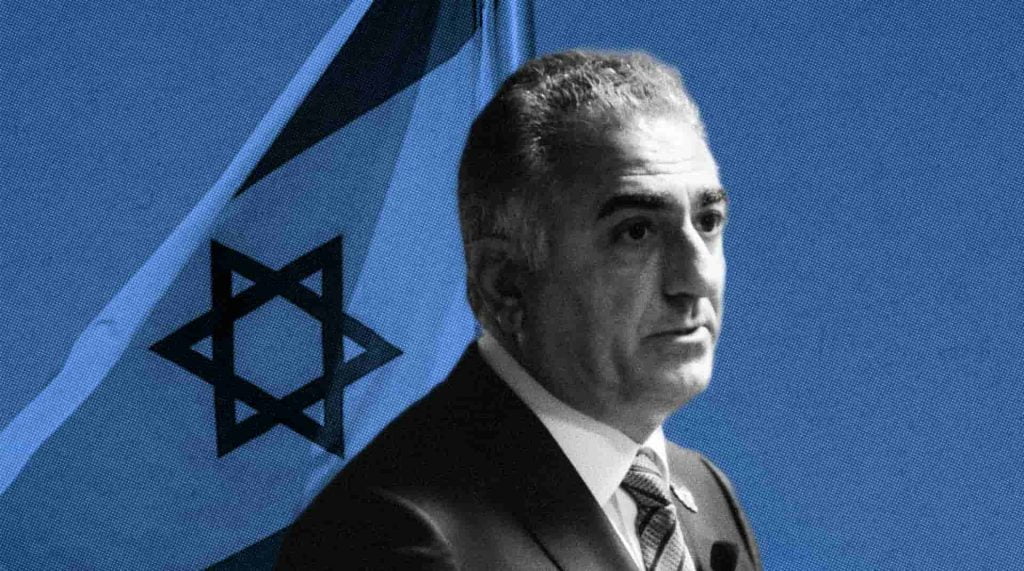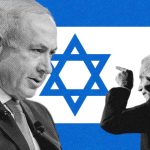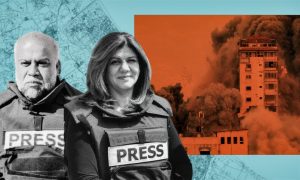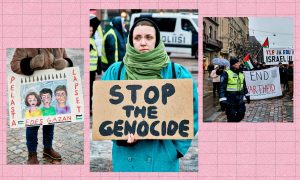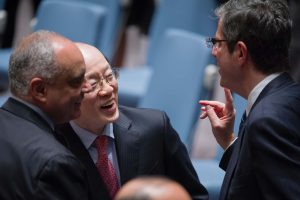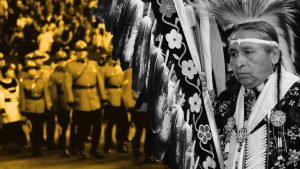What compels one of the largest Iranian opposition groups, itself victim to despotism, to align with a state engaged in systematic oppression of Palestinians? A desperate bid for relevance.
Should you encounter the rare sight of individuals rallying in support of Israel’s actions in Gaza, your attention might be drawn to an unexpected symbol: a variant of the Iranian flag. This particular flag, adorned with the Lion and Sun against a backdrop of green, white and red, harks back to Iran’s monarchical past. This ensign, displayed alongside Israel’s, hails from a time when monarchs reigned over Iran, now seized upon by a diverse array within the Iranian diaspora, particularly those championing freedom in Iran, which includes the monarchists also known as Pahlavis.
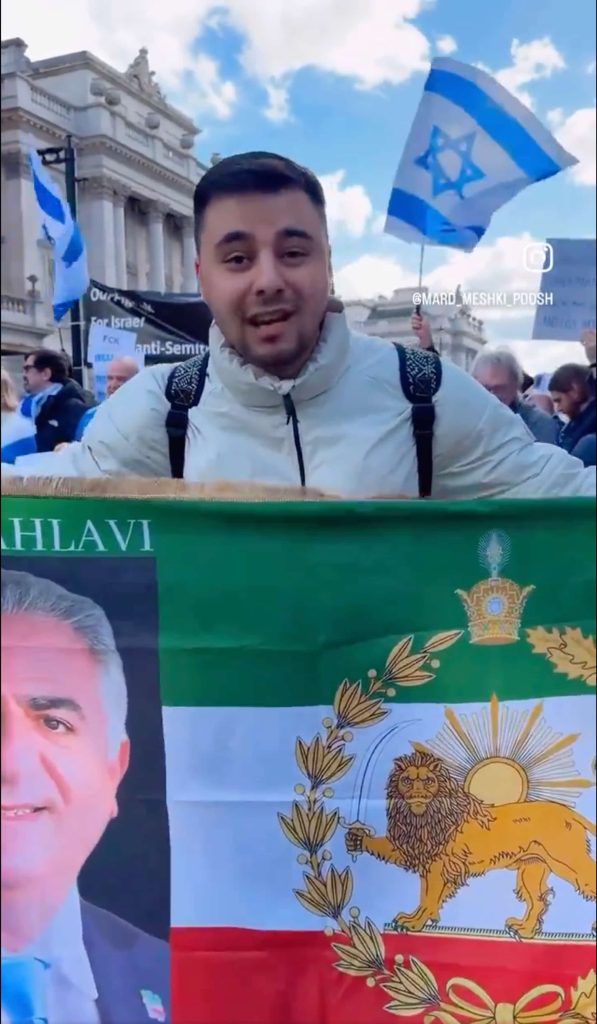
Observing Iranian monarchists—amongst the loudest of Iranian opposition voices—marching in eerie harmony with the Israeli right is akin to witnessing a dance macabre. Here, amidst the echoes of history, they signal allegiance to a regime scrutinised globally for the grave crime of genocide, under the microscope of none other than the International Court of Justice. This spectacle, dripping with irony, unfolds against the backdrop of Gaza’s agony under a brutal onslaught, drawing global condemnation and the watchful eyes of international legal bodies for its severity and devastating human toll.
Israel’s campaign in Gaza, a catalogue of horrors—unprecedented civilian casualties, the highest journalist and aid worker fatalities in history, children starved and entire communities uprooted—speaks to a tragedy beyond the grasp of mere words. Yet, amidst this carnage, a segment of the Iranian opposition diaspora finds a strange bedfellow with the aggressor.
What perverse calculus drives a community, itself chafing under tyranny’s yoke, to align with a state embroiled in systematic oppression? The answer, tangled in a web of historical resentments, personal vendettas and a desperate clutch at relevancy, is disheartening.
From Shah to sham
The reign of Shah Mohammad Reza Pahlavi, which endured until 1979, bore a nuanced yet fundamentally cordial relationship with Israel. It attempted a precarious balance with its connections to the Arab world. The Shah’s cooperation with Israel spanned energy, security and regional stability, albeit with occasional nods to the Palestinian cause and Islamic and non-aligned movements; while never fully embracing them. Moreover, Iran was firmly aligned with the US in the Cold War chessboard. Following the dynasty’s collapse, the Shah’s burial in Cairo in 1980 and the Crown Prince Pahlavi’s relocation to the United States, a saga of diaspora politics unfolded.
Few figures within the Iranian diaspora command the deference in Iran that Reza Pahlavi does. Espousing a liberal democratic stance while critiquing facets of his father’s rule, Pahlavi finds himself at a crossroads. His rhetoric actively calls for compromise, inclusive governance and respect for human rights. Yet, many of his adherents advocate for a more belligerent, exclusionary and ultra-nationalist brand of politics, which he is happy to entertain.
In April 2023, Reza Pahlavi and his wife, Yasmine Pahlavi, made a controversial visit to Israel, engaging with Netanyahu at a time when the global community was increasingly critical of the latter’s policies. This act, as Alex Shams, a US based Iranian academic poignantly highlighted, underscored a stark contradiction: “Nothing says ‘we support freedom’ like celebrating an army that has kept millions of Palestinians under occupation for decades. While leaders globally shun Netanyahu as he steers Israel towards authoritarianism, the Pahlavis saw a photo op.”
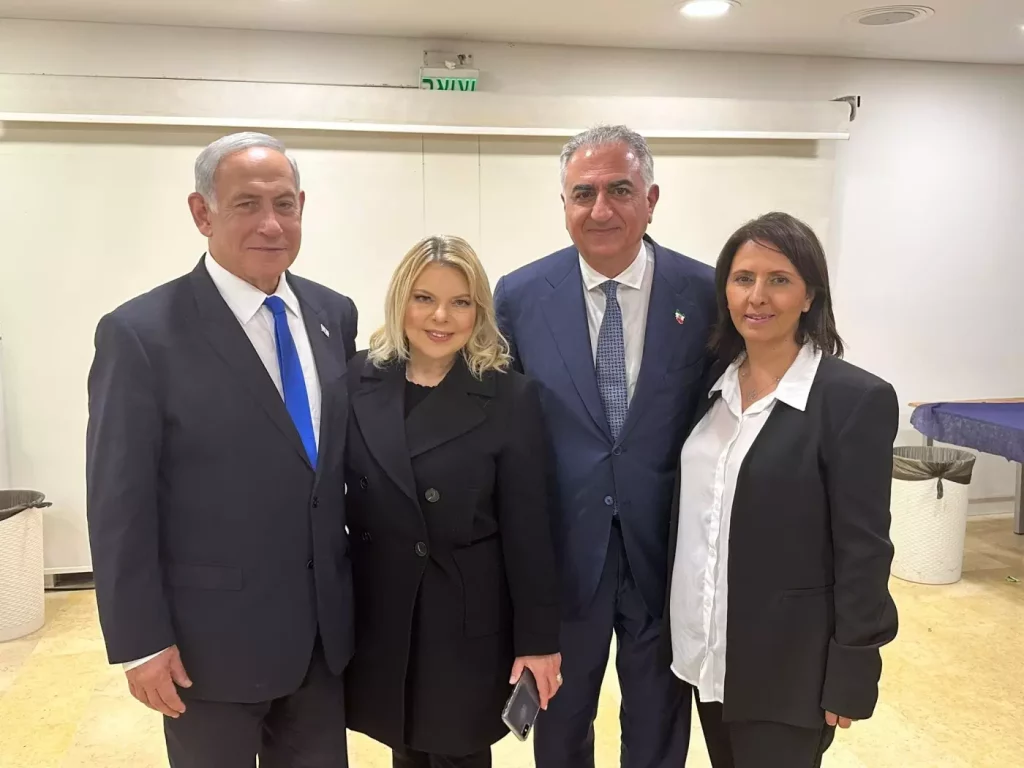
This visit not only reflected a severe lapse in judgement, betraying a deep insensitivity to the plight of the Palestinians, but also isolated the Pahlavis from those they aim to represent. Yet, the hypocrisy did not stop there.
On this trip, Yasmine Pahlavi also posted a photo of a female Israeli soldier in East Jerusalem, which is under Israeli occupation, with the words “Women, Life, Freedom!”, which rightly angered supporters of the Mahsa Amini movement. The protestors did not want their cause associated with Israel’s illegal occupation and demeaning treatment of Palestinians. The slogan, a rallying cry born from the heartache and defiance of the Kurdish struggle for dignity, repurposed in a context that undermines the very essence of its meaning, is not just a political faux pas; it is an affront to the memory of those who have suffered and perished under the yoke of oppression.
By November 2023, the death toll in Gaza had surpassed 11,200 Palestinians since October 7, following Hamas’s killing of 1,200 Israelis. UNICEF reported that over 700,000 children in Gaza were displaced and the United Nations mourned the deaths of over 100 aid workers in Gaza, all of course inflicted upon by the state of Israel. Amidst this turmoil, another photo of Yasmine Pahlavi, with an Israeli flag, ostensibly in support of ‘anti-Semitism’, emerged. Such a confluence of events is almost beyond belief.
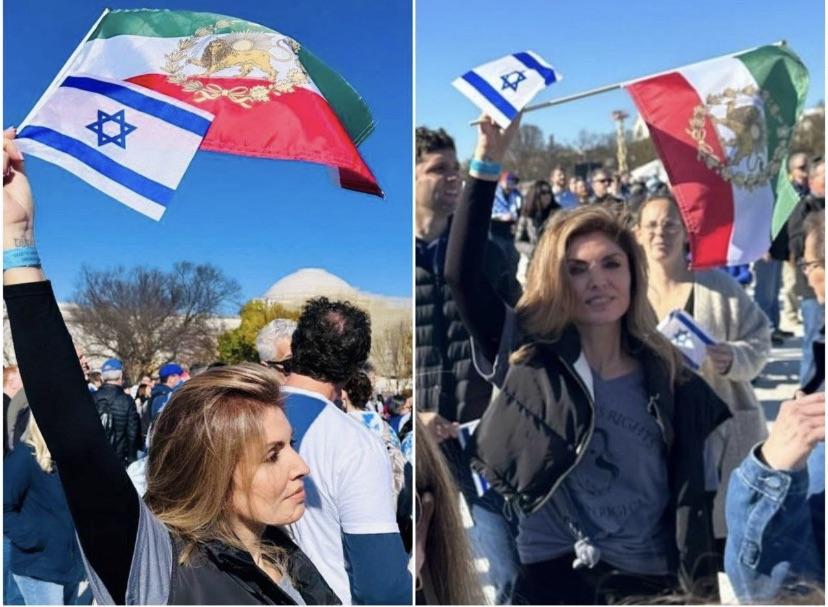
Nurtured in the United States, under the potent influence of the Israeli lobby, Reza Pahlavi and his followers are poised to mirror an American political stance increasingly at odds with the actions of an Israel intent on intensifying its offensive against Palestinians. This alliance, birthed from a mutual antipathy for the Islamic Republic, reeks of opportunism, showcasing a callous indifference to Palestinian suffering and the ramifications of such a partnership.
The Islamic Republic of Iran is a despotic regime, but it is a facile to label every one of its actions as malevolent. Since its establishment, the Islamic Republic of Iran has championed Palestinian rights more fervently than any regional Arab state. Yet, it is crucial to differentiate anti-Zionist rhetoric from anti-Semitic vitriol, which is not uncommon amongst the leaders of the Islamic regime in Iran, the latter, or course, deserving unequivocal condemnation.
A Faustian bargain
If you have followed any Iranian protests, the chant “Neither Gaza, nor Lebanon; my life for Iran”, often heard from a variety of opposition voices, captures the populace’s exhaustion with the regional ambitions of the regime. However, this sentiment reflects a society grappling with its identity amidst tumultuous times, revealing deep-seated internal divisions within the country.
Iranian nationalism and its disdain for the nation’s Islamic and Arabic heritage, ignore the rich mosaic of ethnicities and cultures within, while veering towards exclusion and racism. The dismissal of Arab identity and Islamic legacy by some nationalists underscores a profound misreading of Iran’s diverse character. This internal discord is mirrored in the external alliances that some Iranian figures form, which seem to overlook Iran’s identity in favour of geopolitical gains.
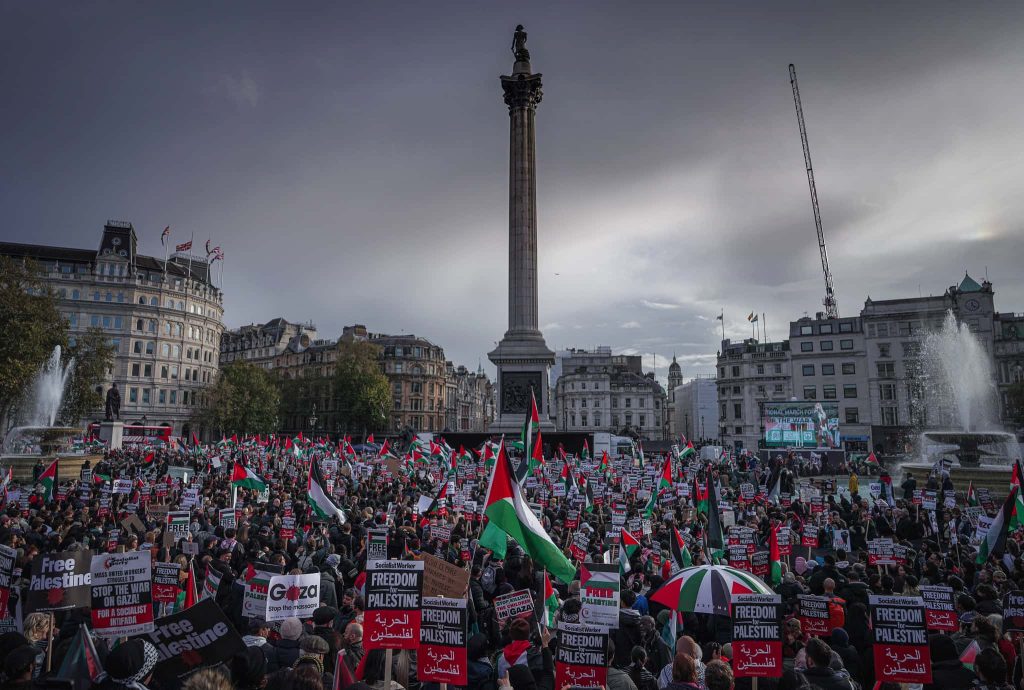
The Pahlavis entourage, by parroting Zionist propaganda and Israeli narratives, not only adopts a cynical political stance, but also betrays a moral bankruptcy. Aligning with a regime accused of genocide under the guise of championing freedom constitutes a hypocrisy so glaring it verges on farce. This, then, is a Faustian bargain, paid for with the blood of the oppressed, for a mirage of power. The Iranian monarchists, in their fervour to confront Tehran, have pledged their allegiance to a more cunning player; maybe the US needs another puppet state in the region. Why not Iran?
This tangled alliance thus compromises the cause of Iranian freedom and independence, mocks the Palestinian struggle, and tarnishes the Shah’s legacy. Such moral destitution, rooted not just in actions but in the flippant complicity with suffering, lays bare the profound consequences of their choices.
Should Pahlavi and his supporters fail to uphold Palestinian rights, it casts doubt on the protection of minorities in a future Iran under their influence. The path forward mandates a clear departure from moral relativism, urging an unwavering advocacy for human rights, devoid of political expediency.
Let us be unequivocally clear: the acceptance of Israel’s statehood might be a diplomatic necessity for any future government in Tehran; but to elevate Israel as a model and paragon of democracy? That is a folly—a mirage of governance that mocks the very principles it purports to uphold. A future Iran, when it is to emerge from the shadows of despotism into the light of day, must plant its standards firmly in the soil of human rights and the rule of international law. It must advocate for the oppressed, regardless of borders; standing in solidarity with those in Gaza as fervently as with those within its own confines.
The struggle for freedom recognises no barriers, no exceptions. To overlook this truth is to betray not just the Iranian people or the Palestinians, but the entirety of our shared humanity.



